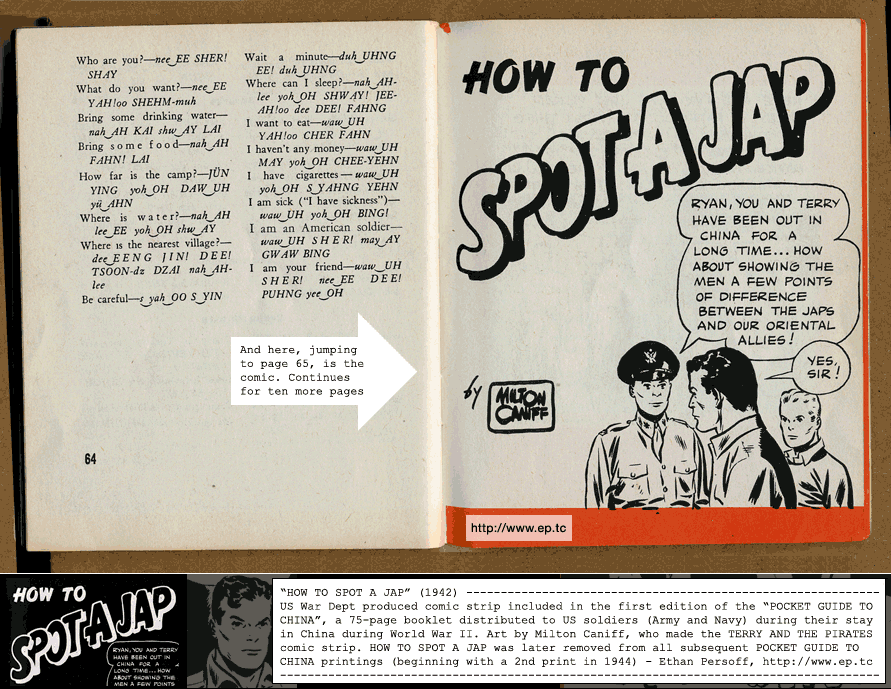Consider these two phenomena:
1) Athletes endorsing products that supposedly help their performance; and
2) Exploitive marketing of second language learning products that offer a specific pattern of drills as a purported secret to learning the language.
By themselves, they are typical, if somewhat sleazy parts of everyday consumer life. But put them together and you get this nugget of infotainment from the ethically-challenged Daily Yomiuri:
Bobby Valentine learns the joy of Japanese
Yoko Mizui Daily Yomiuri Staff Writer
“The most exciting thing that ever happened to me was not winning the Asian Championship and the Japan Championship last year. Nor was it winning the Major League. It was not even winning koryusen this year,” said Chiba Lotte Marines baseball team manager Bobby Valentine. “The most exciting thing was that at the age of 50 plus, I could discover Step Up Nihongo and learn the language.”
Valentine talked about how he learned the Japanese language and utilizes it in managing his team at a seminar to introduce a new e-learning system, “eSUN,” in Tokyo on June 26.
Step Up Nihongo (SUN) is a set of textbooks for non-Japanese to study the Japanese language, written by Shigekatsu Yamauchi, who also writes the monthly column “Japanese in Depth” for the Language Connection page of The Daily Yomiuri.
That’s right, just when you think Chiba Marines manager Bobby Valentine is going to give us some insight into ups and downs of his attempts to learn the language of his adopted home (which he incidentally lives away from in the off-season), BAM you get a sales pitch. There is nothing indicating that this article is an advertisement meant to promote a specific product. And adding insult to injury, there’s next to no info about how good Valentine’s Japanese actually is or how he really learned it. I guess it’s up to us to try eSUN and find out, right?
In the interest of fairness, there are dozens of press releases put out and promotional events held every single day in Japan announcing the arrival of some great new product. Every one of them claims to be newsworthy, making it up to the reporter/editor’s judgment to know what is really worth printing. If we give the Yomiuri the benefit of the doubt, “Bobby Valentine endorses Japanese study method” could be newsworthy in and of itself. He’s yet another success story of a foreigner in Japan, so people want to hear just about any tidbit of information that’s available. I mean, color me ignorant, but I didn’t even know Valentine was seriously studying Japanese, although I’m not about to start believing it now (Question: is his Japanese any good? According to this Nov 2005 interview it’s “a major problem”). Unfortunately, the article is not exactly written to emphasize the newsworthy aspects of the event. Again and again the writer emphasizes the benefits of eSUN.
Keep in mind that in the Japanese media, product placement passed off as news (i.e.: with no mark denoting that you’re looking at an ad rather than actual news) is rampant (for example, Nikkei has an entire Saturday supplement for just such a purpose). Marxy has some good coverage of that phenomenon on his blog.
I would say this article fits snugly into that tradition of unannounced advertising. Especially since after about 10 minutes of the most cursory research, I was able to unearth a good bit of info to that makes it unlikely that Valentine is merely a volunteer supporter of this learning technique.
First let’s consider: are we really expected to believe that the discovery of this product was the most exciting moment ever in the life of the Bobby Valentine, the only foreign manager (except for Sadaharu Oh I guess but he doesn’t count) in Japanese baseball to ever win the Pacific League and Japan Series championships and, coincidentally, the inventor of the “wrap” sandwich?
If it is, he’s been quiet about it up to now – he only mentions the product once on his official blog (which in turn is a marketing gimmick for a different site) in the form of a brief non-sequitur in a February 2006 post explaining how the blog works:
It is very interesting to note that David, who is bilingual in English and Japanese, learned his Japanese from the same teacher I am currently learning mine! Our teacher is Shige Yamauchi-sensei of ICI, a foreign language school in Tokyo. Using Step Up Nihongo (SUN), which is a wonderful teaching tool for those that want to learn Japanese, students can not only learn it by book and tape form but also interactive internet lessons as well.
But that brief endorsement was enough to warrant ICI, creator of the Step Up method and the company featured in the article in question, to include a full-on graphic logo (linked to the above blog post) on their website to let potential students know that Valentine endorses their methods:

And I’m sure he does – but I have a tough time believing he’s doing this simply as an uncompensated advocate. The article claims that Valentine was hooked on eSUN after someone handed it to him on a plane. Sure, and James Bond drives a BMW to impress chicks. Valentine is a businessman. Look at the way he’s doing his blog: some secretary is recording his thoughts while he’s on the road, and then transcribing them onto a blog that links directly to a major Valentine investment. Pretty shrewd!
And from the get-go, the seminar that constitutes the “where” of the article was held by a company run by a Yomiuri contributor. Considering that the very existence of his column is a convenient way to drum up business, sneaking in a cheap promotion of a celebrity endorsement of his product doesn’t make for much of an intellectual stretch. And being a part of the Yomiuri establishment must make it easy to cut in line ahead of other, less-connected Japanese learning methods.
So we’ve got a) An article that is clearly pushing a specific product but does not identify itself as an ad; b) a subject who in all likelihood is a paid (but unannounced) spokesman for the product; and c) The company offering said product has personal and financial connections to Yomiuri. In my own amateur opinion, such an article violates the “newspaper ethics” that the Yomiuri supposedly subscribes to as a member of the Japan Newspaper Publishers and Editors Association (NSK). Here’s the relevant excerpt of the NSK’s Journalistic Canon, Newspaper Advertising Printing Standards (for some reason these standards are left out of the English version of the NSK website):
[Newspapers] shall not print advertisements that correspond to the following:
[omitted]
3. Falsehoods or items for which there is a danger of misinterpretation.
“Items for which there is a danger of misinterpretation” refers to the following:
(1) [Advertisements] that use formatting and expressions that look ambiguously like editorial matter, making the fact that it is an advertisement unclear.
[rest omitted]
So as long as the journalistic canon applies to online articles (at least it seems to in the US) the DY might consider sticking the word “advertisement” above articles that serve little purpose than to sell us something. Until either that happens or I get definitive proof that Bobby Valentine has no endorsement deal with Step Up Nihongo, I will continue to be properly offended.
(Thanks to FG for pointing this article out to me)



